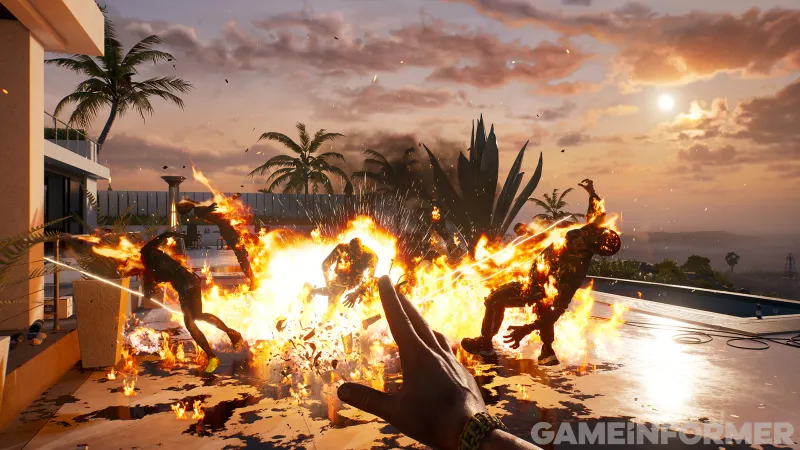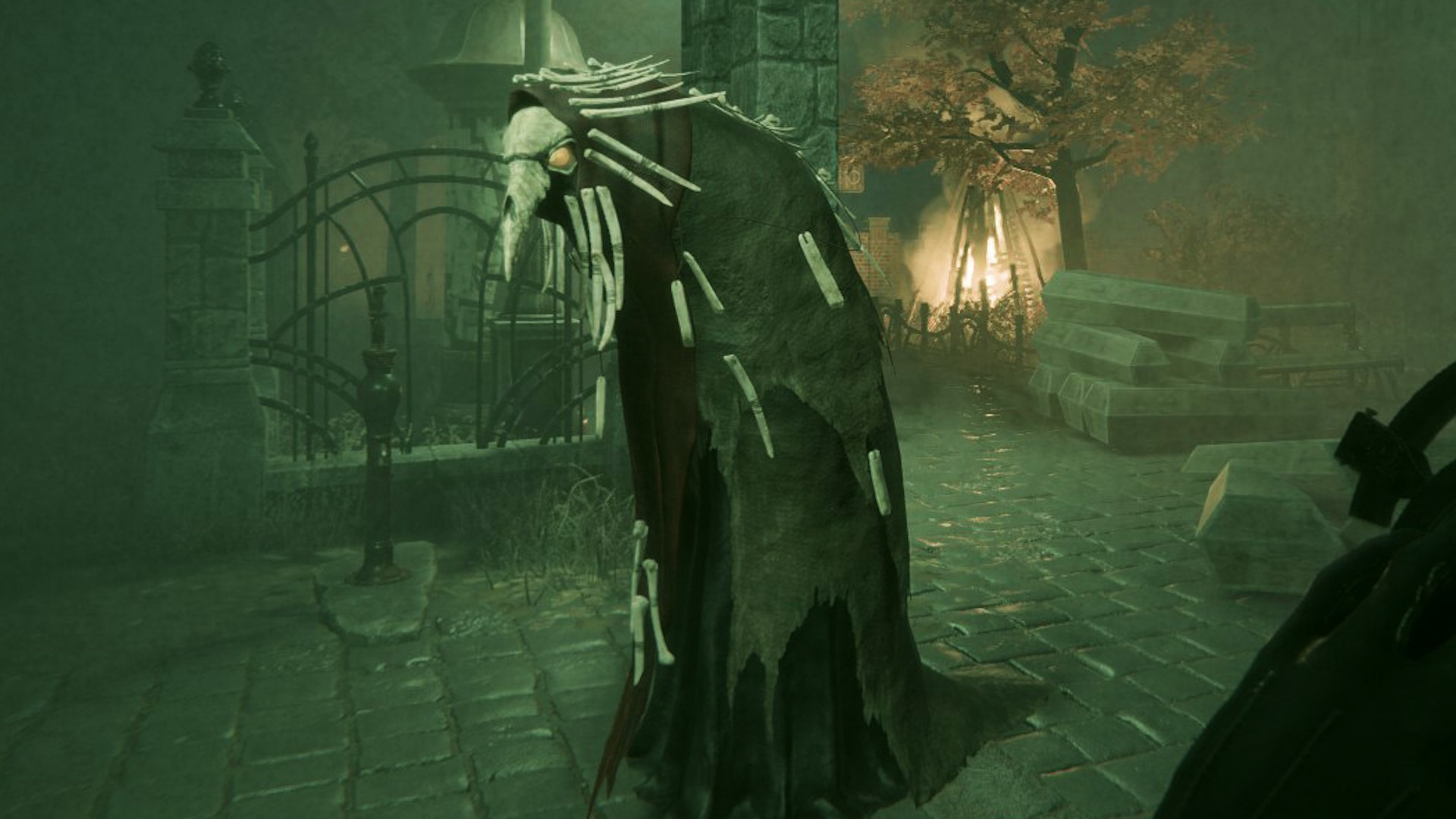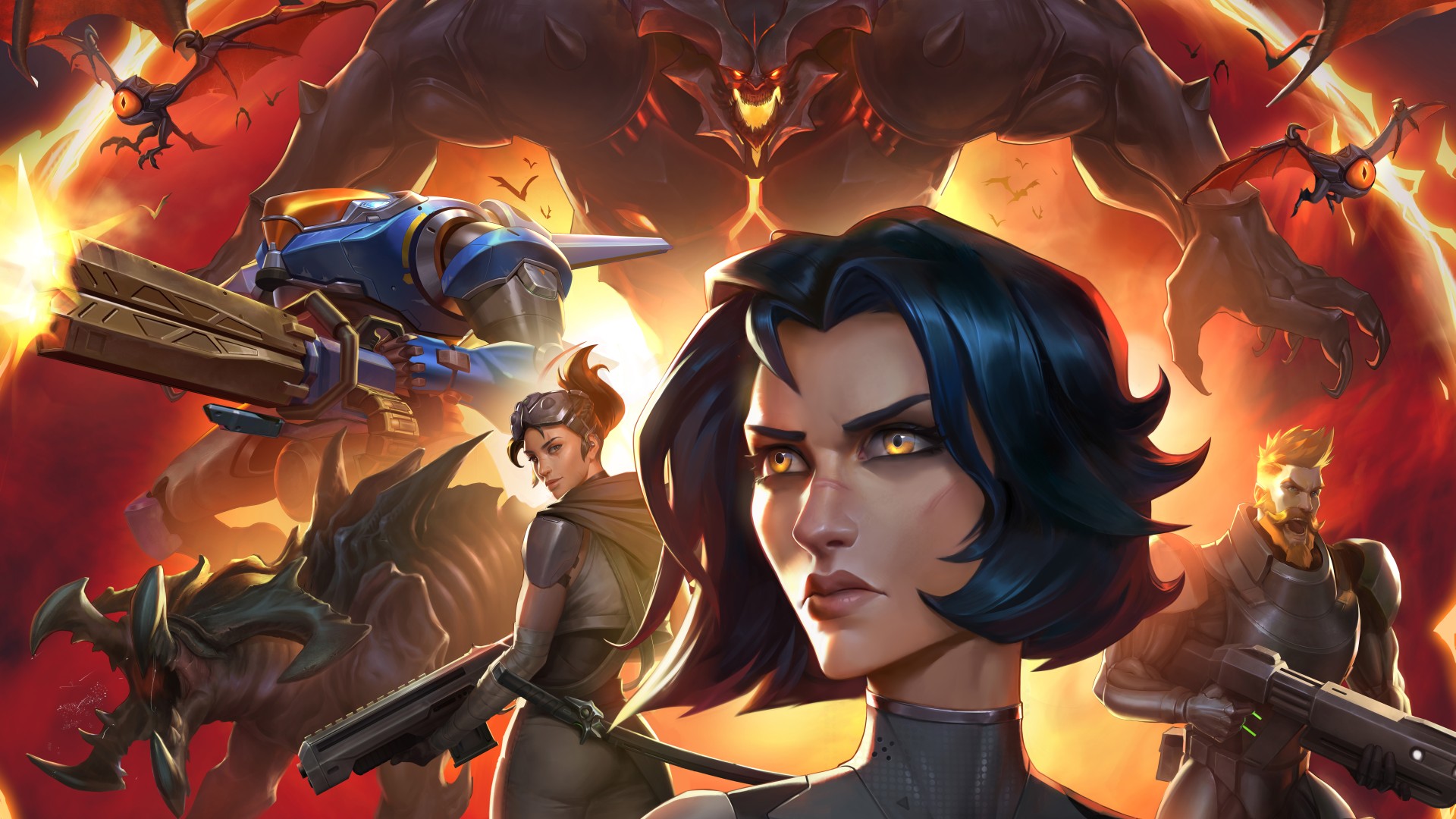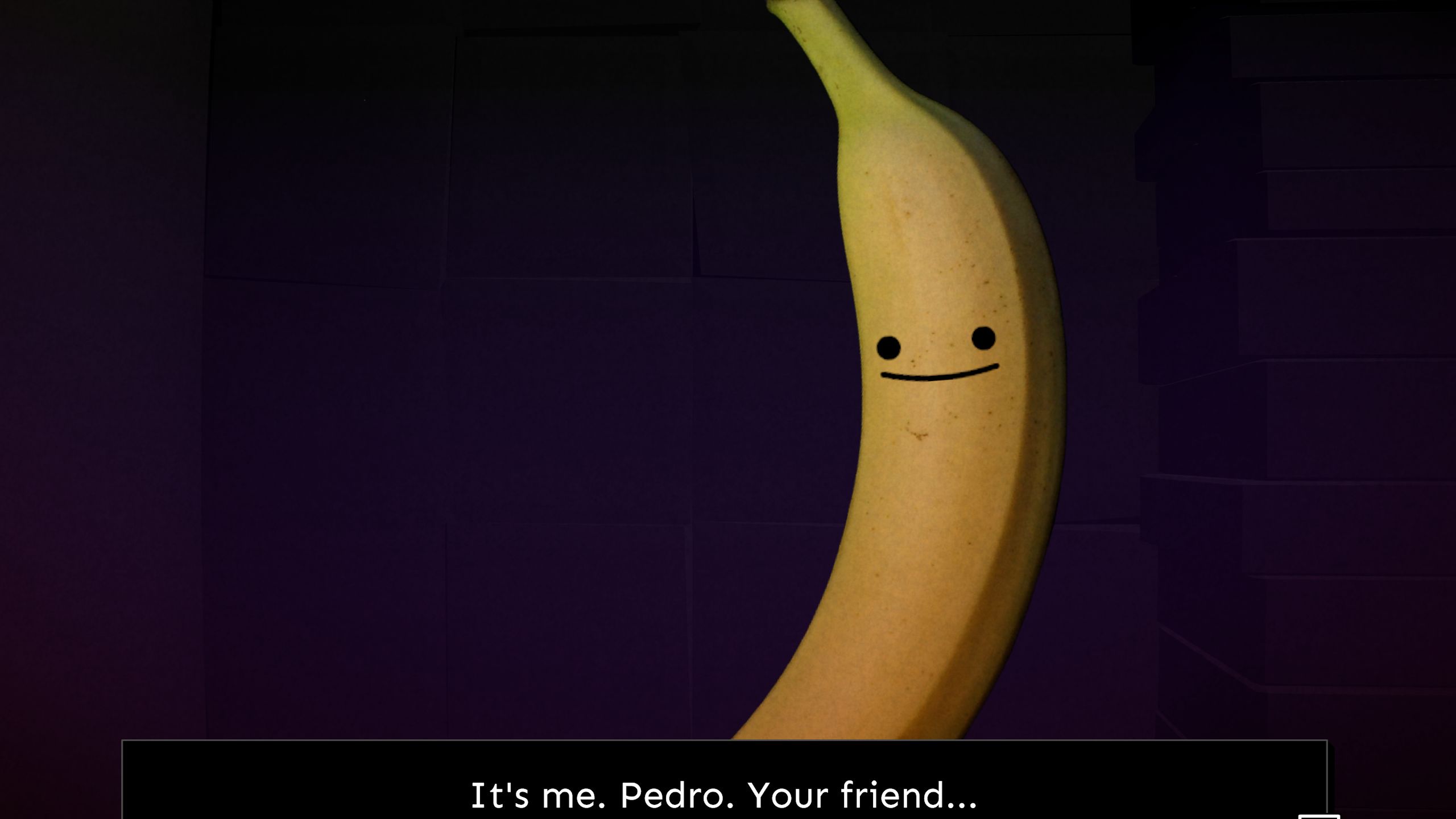
Publisher Deep Silver revealed Dead Island 2 in 2014 and Los Angeles was its primary setting (with a tease in the game’s logo that San Francisco might be in it as well). Fans were excited about the sequel for several reasons – that original reveal trailer was great – but the question on many minds was this: Why is Dead Island 2 set somewhere that’s not an island? I traveled to Nottingham, England to visit Dambuster Studios, and this was one of the first questions I asked. Unsurprisingly, considering this is the team that's been developing this game since 2018, lead narrative designer Khan had an in-depth answer. Simply put, Los Angeles has become an island, metaphorically speaking. Dambuster Studios Dead Island 2 begins in the final days of the evacuation of LA after the zombie outbreak has swept through the city. She says some aspects of this evacuation have been surprisingly efficient, so the entire city has been cordoned off unexpectedly well. The final decision from authorities is that LA must remain quarantined so that the infection can run its course and, hopefully, die off. As a result of this quarantine, nobody can go in, and nobody can leave. As if entirely surrounded by water with no access to boats or other ways to escape, people (and zombies) within LA cannot escape the city. While not geographically an island, authorities have cut LA off from the rest of the world. That’s the lore explanation for why Los Angeles is the setting for a game series about being stuck on an island with zombies. There’s also the practical reason sitting somewhere between the lines: Los Angeles is an iconic location, easy to market, and features more variety than a resort island like Dead Island’s Banoi. I wouldn’t be surprised if Los Angeles is the setting simply because designing a zombie game in the city is great fun. It certainly seems to be the case if my conversations with Dambuster are any indication. “Going from Banoi on a resort island to Los Angeles… the answer is… it’s super diverse,” design director Adam Duckett tells me. “There’s tons of opportunities and potential, both in terms of environments, but also in terms of characters, the personnel, and the zombies themselves that we can put into the game. There’s that vibrancy, the sundrenched locations, the beaches, the exotic mansions of Bel-Air, and beyond. It’s a great environment for us to have that combat experience.” Creative director James Worrall echoed Duckett’s sentiment, citing that LA is an excellent opportunity for big characters in terms of location and actual people. “Los Angeles has quite an eccentric or expressive kind of culture and identity, and that identity is recognized all around the world,” he says. “Whether you’ve been to LA or not, we’ve all seen it through the lens of Hollywood, and we thought that sort of Hollywood lens would be a great way to entertain while you’re running around punching zombies.” Throughout my conversations with the team at Dambuster, developers referred to the game’s setting as “postcard” LA. The open-hub design of Los Angeles will take players to the iconic locations you’d likely see on a postcard in a California airport: Bel-Air, Hollywood, the Santa Monica Pier, Venice Beach, and more. Given the game’s take on pulp action-horror, each of these postcard locations has been caricatured to a degree, which makes sense – the locations need to match the over-the-top gore of the zombies and the larger-than-life characters that chose to stick around in Hell-A. “You’ve got these two or three layers,” Worrall continues. “We’ve got this fantasy version of LA that everybody’s seen – the Hollywood lens. We’ve got stamped on top of that, the tragic remains of the evacuation attempt that failed… and then on top of that, we’ve got your sort of classic zomb-pocalypse. But we’ve been very careful to raise the vibe and the color of the place. [Art director Adam Olsson] and his team have done a great job in… glamorizing this place. We’re not looking at a version of Fallujah or something like that or a war zone. It’s still a fantastical, easily navigable, and relatable space.” Olsson says on the visual side of things, he and his team have worked to build up the almost mythological being that LA has become as a city, which further brings out Dead Island 2’s pulpy atmosphere. Worrall said Dambuster’s inspirations for the Dead Island 2 vibe in LA go back to 80s, 90s, and 00s horror, especially in the more schlocky realm, like Robocop, Nightmare on Elm Street, and the Alien and Predator franchises. “I have really, really nostalgic memories of going to watch a movie in the afternoon, and you’d be immersed in this world, and the credits would roll, and you’d come out into this sunshine, and there was this real sense that you just left a real place behind,” Worrall remarks when I ask him what he wants players to feel when Dead Island 2’s credits roll. “And there’s a little sense of loss, but a little sense of, ‘Well, I can’t wait for the next.’” As for Olsson, he wants players to feel dazzled by all the colors and how everything in Dead Island 2 comes together. “I want them to say like, ‘Why doesn’t more stuff do this?’” he says. “Zombies are fantastic. Really, what we want to do here is just bring back the fun with zombies because… we’ve had so many games for 10 or 20 years where it’s been popular, but so many of them are just that dark mirror held up to show the deepest depth of man. And I just kind of want people to come out and think, ‘That was fun. Zombies are fun again.’” Worrall, Olsson, Duckett, and the team at Dambuster believe Los Angeles is just the place to do that.
Publisher Deep Silver revealed Dead Island 2 in 2014 and Los Angeles was its primary setting (with a tease in the game’s logo that San Francisco might be in it as well). Fans were excited about the sequel for several reasons – that original reveal trailer was great – but the question on many minds was this: Why is Dead Island 2 set somewhere that’s not an island?
I traveled to Nottingham, England to visit Dambuster Studios, and this was one of the first questions I asked. Unsurprisingly, considering this is the team that’s been developing this game since 2018, lead narrative designer Khan had an in-depth answer.
Simply put, Los Angeles has become an island, metaphorically speaking.
Dambuster Studios
Dead Island 2 begins in the final days of the evacuation of LA after the zombie outbreak has swept through the city. She says some aspects of this evacuation have been surprisingly efficient, so the entire city has been cordoned off unexpectedly well. The final decision from authorities is that LA must remain quarantined so that the infection can run its course and, hopefully, die off. As a result of this quarantine, nobody can go in, and nobody can leave. As if entirely surrounded by water with no access to boats or other ways to escape, people (and zombies) within LA cannot escape the city. While not geographically an island, authorities have cut LA off from the rest of the world.
That’s the lore explanation for why Los Angeles is the setting for a game series about being stuck on an island with zombies. There’s also the practical reason sitting somewhere between the lines: Los Angeles is an iconic location, easy to market, and features more variety than a resort island like Dead Island’s Banoi. I wouldn’t be surprised if Los Angeles is the setting simply because designing a zombie game in the city is great fun. It certainly seems to be the case if my conversations with Dambuster are any indication.
“Going from Banoi on a resort island to Los Angeles… the answer is… it’s super diverse,” design director Adam Duckett tells me. “There’s tons of opportunities and potential, both in terms of environments, but also in terms of characters, the personnel, and the zombies themselves that we can put into the game. There’s that vibrancy, the sundrenched locations, the beaches, the exotic mansions of Bel-Air, and beyond. It’s a great environment for us to have that combat experience.”
Creative director James Worrall echoed Duckett’s sentiment, citing that LA is an excellent opportunity for big characters in terms of location and actual people.
“Los Angeles has quite an eccentric or expressive kind of culture and identity, and that identity is recognized all around the world,” he says. “Whether you’ve been to LA or not, we’ve all seen it through the lens of Hollywood, and we thought that sort of Hollywood lens would be a great way to entertain while you’re running around punching zombies.”
Throughout my conversations with the team at Dambuster, developers referred to the game’s setting as “postcard” LA. The open-hub design of Los Angeles will take players to the iconic locations you’d likely see on a postcard in a California airport: Bel-Air, Hollywood, the Santa Monica Pier, Venice Beach, and more. Given the game’s take on pulp action-horror, each of these postcard locations has been caricatured to a degree, which makes sense – the locations need to match the over-the-top gore of the zombies and the larger-than-life characters that chose to stick around in Hell-A.
“You’ve got these two or three layers,” Worrall continues. “We’ve got this fantasy version of LA that everybody’s seen – the Hollywood lens. We’ve got stamped on top of that, the tragic remains of the evacuation attempt that failed… and then on top of that, we’ve got your sort of classic zomb-pocalypse. But we’ve been very careful to raise the vibe and the color of the place. [Art director Adam Olsson] and his team have done a great job in… glamorizing this place. We’re not looking at a version of Fallujah or something like that or a war zone. It’s still a fantastical, easily navigable, and relatable space.”
Olsson says on the visual side of things, he and his team have worked to build up the almost mythological being that LA has become as a city, which further brings out Dead Island 2’s pulpy atmosphere. Worrall said Dambuster’s inspirations for the Dead Island 2 vibe in LA go back to 80s, 90s, and 00s horror, especially in the more schlocky realm, like Robocop, Nightmare on Elm Street, and the Alien and Predator franchises.
“I have really, really nostalgic memories of going to watch a movie in the afternoon, and you’d be immersed in this world, and the credits would roll, and you’d come out into this sunshine, and there was this real sense that you just left a real place behind,” Worrall remarks when I ask him what he wants players to feel when Dead Island 2’s credits roll. “And there’s a little sense of loss, but a little sense of, ‘Well, I can’t wait for the next.’”
As for Olsson, he wants players to feel dazzled by all the colors and how everything in Dead Island 2 comes together.
“I want them to say like, ‘Why doesn’t more stuff do this?’” he says. “Zombies are fantastic. Really, what we want to do here is just bring back the fun with zombies because… we’ve had so many games for 10 or 20 years where it’s been popular, but so many of them are just that dark mirror held up to show the deepest depth of man. And I just kind of want people to come out and think, ‘That was fun. Zombies are fun again.’”
Worrall, Olsson, Duckett, and the team at Dambuster believe Los Angeles is just the place to do that.



